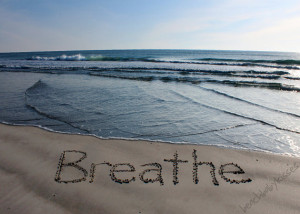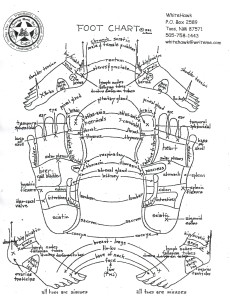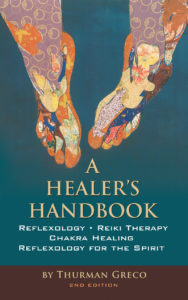Eight Ways to Fight the Fear
To be honest, things are becoming more and more confusing as the days go along. Every time I greet a friend or neighbor or anyone, for that matter, she talks to me as if we are all lost.
And, maybe we are.
It’s hard-to-impossible to figure out sometimes where this year is headed. Some of my friends and acquaintances are solving their dilemma by simply not reading papers or watching TV.
Others choose their channels with care, blocking out everything that seems to be problematic.
Still others are becoming information junkies, focusing their lives on a particular channel offering information they can understand and accept.
On the home front, our Woodstock community is undergoing gentrification. We’re all facing the fact that we’re living in a place far removed from the community we chose to live in when we moved here.
And, this situation comes on the heels of the stresses of Covid and everything that went with that.
Our home is hardly recognizable.
And, I haven’t even brought other news: economic, climate change, the election, our local schools – and any other thing you can imagine.
Then, there are all the economic and social changes in our country.
Sometimes, I think that each of us is on our own, private, Yellow Brick Road.
And, that leads me to the whole reason for this blog post: Fear
The Fear is palpable.
It has an odor.
I see it on the street in the way people walk and the way they talk and the way they dress.
There are some things we can do as we make our way forward into a future many of us are having trouble even imagining.
ONE. Speak Your Fear. As soon as you begin to share your fear, it begins to lose its power over you.
TWO. When fear covers you with an invisible tent, practice breathing exercises. Include meditation sessions. Find what works for you and practice it regularly. When this breathing exercise becomes a part of your life, you should be able to find calm which will send the panic running.
THREE. Exercise regularly. Regular exercise slows down the fight-or-flight reflex. The options are open here. Do what you enjoy.
FOUR. Seek out friends you can chat with who will have a calming effect on you. This step has been helpful for me. When I’m upset, I call Carey and we chat. Sometimes she calls me. Over the last few months, I’ve gathered a few friends who call me. We’re an informal support group.
FIVE. Enjoy Reiki, or other bodywork modality, regularly I’m watching healing groups form in the area. People gather regularly to share and exchange their sessions. I cannot tell you how important these groups are. Peace. Calm. Lower Blood Pressure, Sleep………….
SIX. Get the what-ifs out of your life and your mind. These lists of fears can wreak havoc on your day. And, they will not save your situation. They are a waste of time which will get you nowhere. Instead, focus your energy on things you can manage.
SEVEN. Write something. This can be a memoir, a journal, a diary, a letter to the editor, a note to a friend you haven’t seen in awhile – whatever works for you. If you’ve never written anything before, now is a good time to begin. Don’t worry. Everybody has a first sentence or chapter or essay. I had one. I never wrote anything but my name before 2013. And, now I have 2 blogs and several books – one of which has been purchased by people in over three dozen countries!
When you begin to write, don’t be afraid of a blog. My first 2 blogs certainly kickstarted my career. I bought a book by Nina Amir: “How to Blog a Book”. I read this book and followed Nina Amir’s instructions.
EIGHT Stress and what-ifs are good invitations to develop our spiritual and religious lives. This is a good time to meet fear with a renewed trust in your spiritual and religious beliefs.
Sometimes reality can be downright scary. This week, meet the uncertainty and fear in your life with a renewed calm. Work your way down the list and see what item helps you the most.
And, finally, thank you for reading this blog post!
Thurman Greco.
Find out more at www.Thurmangreco.com.
You can also find out more about healing and many other things at this blog. Let’s Live is a program airing weekly in Woodstock, NY for about 20 years. Guests on the show are people who have become a part of Woodstock for a day, a week, a decade, or a lifetime.
I look forward to hearing from you about how you like the show.
Find out more about the books at www.thurmangreco.com
Thank you for forwarding this post to your friends and family and sharing it with your favorite social media network.
5 Ways to Be Connected
The human immune system is a fast responder. It knows immediately when/if we are having emotional or spiritual problems. And, of course, this response affects our health.
If wellness is important to you…and I think it is because you’re a reflexologist, then one of the best things you can do is pamper your immune system. This works for your client partners also. No one is exempt on this.
This we know: there is a direct correlation between negative emotions, disease, and accelerated aging. Appreciation, sympathy, understanding are important to all of us.
Inner peace is important to being well – being grounded.
One thing in life which promotes inner peace and groundedness is an appreciation for nature and seeing the connection that all living beings share.
There are several ways to promote this connectedness:
WALK IN THE PARK. Actually, a “walk in the park” is the generic term for any activity which gets you positively involved with nature That can include biking, hiking, museum going, or anything else which makes you aware of how connected we all are.
GET A PET. This is a biggie if you can do it. Not everyone lives where pets are allowed. But, if you can…a dog or cat is awesome. Pets offer something which humans seem to be unable to offer: unconditional love.
A pet will:
improve your immune system function,
give you a more positive outlook on life,
lower your blood pressure
love you unconditionally.
What more can you ask for?
KEEP A JOURNAL. For some this can be a challenge. But, this journal is not for anyone but yourself. So, don’t worry about the spelling, punctuation, paragraphs, etc.
The purpose of your journal is to make a note of special moments which sustain you when you’re feeling low. Such moments include:
a cat’s purr
a baby’s smile
a smell of a flower
a compliment
a smile from a stranger
When you record them, you may notice that these special moments occur more often than you thought.
BREATHE. This is a biggie. Breathe in while while mentally repeating a positive phrase such as “I bring positive energy into my life.” Hold your breath for a moment and then exhale as you repeat “I radiate positive energy.” Consciously breathing for a couple of minutes each day can have a profound impact on your life.
Many people go through their whole lives not even thinking about how they breathe or what their breath does for them. Honor your breath.
INCORPORATE SURPRISE. Try to do something unexpected every day. Compliment a total stranger on a haircut or a jacket or something. It doesn’t matter what, really. Just say something complimentary to someone who is totally not expecting anything.
Leave a small token for someone who is not expecting anything…and keep it a secret if you can.
Offer to walk someone’s dog.
Say “Thank you.”
GET INVOLVED. This can mean walking a dog at the local pound or hosting a food drive for your local food pantry. There are many, many groups out there where people are working to make life better for us all. Volunteering is an extremely positive way to go through life.
Thank you for reading this blog/book.
please refer this article to your preferred social media network.
don’t forget to join the email list.
Peace and food for all.
Thurman Greco
Michele Garner donated the artwork for this post.
4 Things You Can Do To Breathe Properly
While it’s true that we don’t come into embodiment with a book of instructions, I wish we did at least show up knowing how to breathe.
Many of us breathe much too shallowly which keeps the body tight. Relaxation is difficult and body functions have a tendency to be stagnant. This makes all the little mundane things we do everyday much harder.
In the ideal situation, a person breathes slowly, deeply, consciously.
When you breathe slowly,
your mind relaxes,
your body purifies,
your energy level increases,
you maintain a sense of well-being.
When you breathe properly, you exercise your intuitive skills. Many people mistakenly believe they are not intuitive when, in fact, they are. The problem is they are breathing so shallowly that their body is too uptight to know when the intuitive sense is working.
If you feel you aren’t breathing properly, take yoga classes. Find a yoga teacher who will admit that s/he can teach proper breathing techniques.
OR
Take some breathing classes from a breath instructor if you can. That’ll only make you a better reflexology practitioner or client-partner.
OR
Singing classes may be an option for you as well.
OR
Set aside 2-3 minutes a day in which you simply breathe mindfully. To do this, begin by sitting comfortable in a quiet, safe place.
Focus on your breathing. It may help to close your eyes here for a couple of minutes.
Find a place on your body where you can actually feel yourself breathing. That may be your nose, your abdomen or your diaphragm.
Now – just pay attention to your own breathing and nothing else. Notice the quality of each breath, how your body moves, how it feels to breathe.
As you do this, you should begin to feel some burdens lifting and some stress melting.
Try doing this exercise daily for several weeks. This may be something you find yourself doing daily over a long period of time. Or, this may be something that eventually becomes a meditative exercise for you.
In the meantime, try to spend a few minutes each day consciously breathing in through your nose and out through your mouth. As you do this, be aware of your abdominal muscles contracting as you inhale. As you exhale through your mouth, feel your abdomen softening, expanding.
Some behaviors indicate poor breathing habits:
yawning a lot during the day
taking a lot of deep breaths,
holding your breath mid-conversation,
poor posture
When this happens, you may not be getting enough carbon dioxide in your blood or not enough oxygen to your brain.
Notice your own breathing each day and observe how your client-partners breathe. Encourage better breathing habits for both you and your client-partners.
Guideline: Breathe slowly, deeply, consciously.
Thank you for reading this blog/book. I hope you will enjoy this next series of posts which make up the wellness part of the textbook.
Please refer this article to your preferred social media network.
Peace and food for all.
Thurman Greco


















